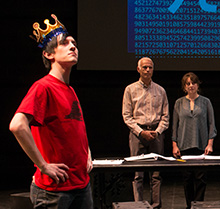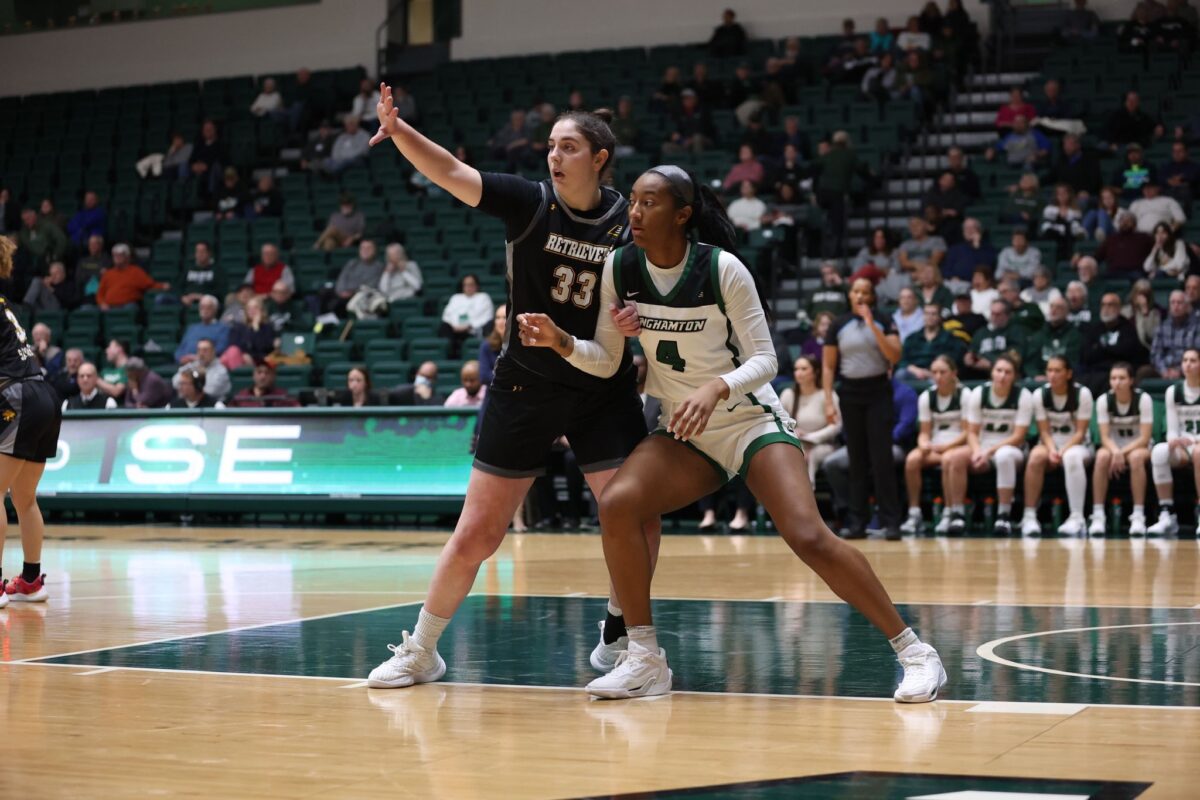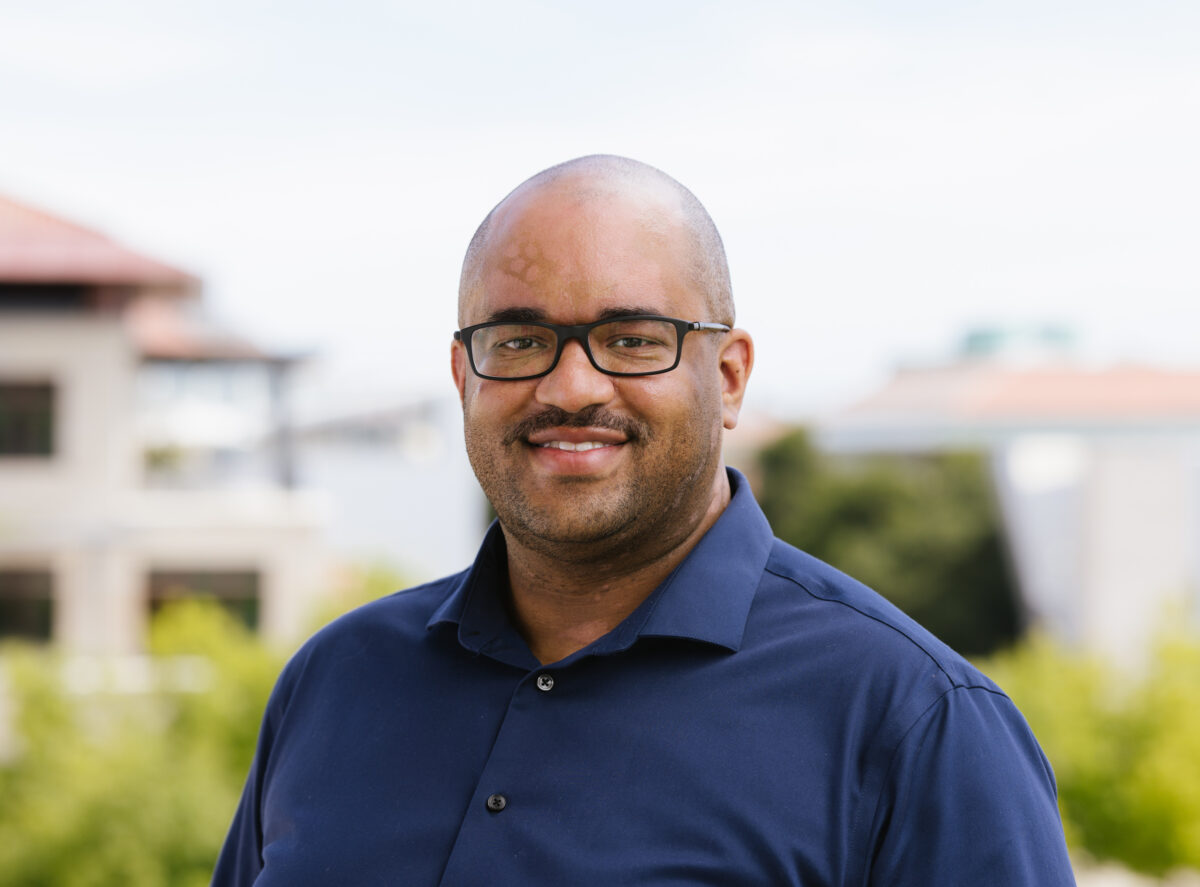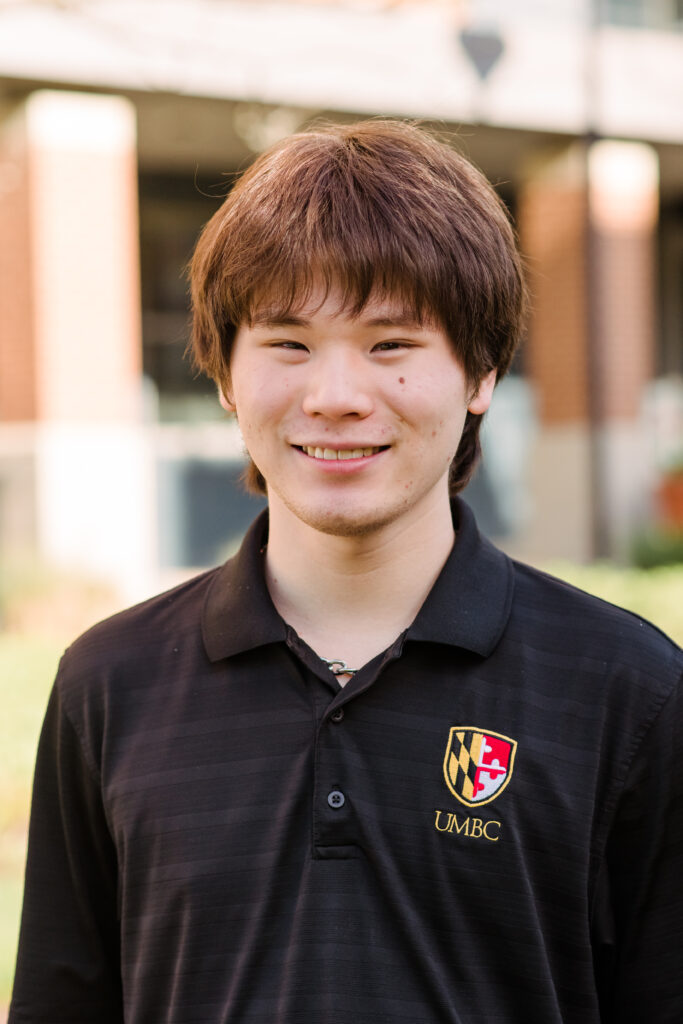Only Human
UMBC professors spar onstage about math, poetry and what it means to be human.
In anticipation of a new semester, English professor Naomi Kessler introduces herself to mathematics professor Mike Pearson. They wouldnt typically cross paths, but a new interdisciplinary requirement has the university asking all tenured faculty to teach a course with a colleague in a different department, and Naomi and Mike have been matched. The problem: when it comes to collaborating they are a painfully dysfunctional pair.
From the time they first meet, the two professors wrestle for control of the curriculum for their joint seminar on mathematics and literature, and they struggle to find common ground as thinkers and educators.
Kessler and Pearson are characters in a new play written by UMBC faculty Michele Osherow and Manil Suri, inspired by their experiences jointly teaching a freshman seminar that bridged their two areas of expertise.
Osherow, an associate professor of English, and Suri, a mathematics professor, taught Mathematics and What it Means to be Human in fall 2011, and later examined their own and their students experiences in a popular Chronicle of Higher Education article series. The play was a natural outgrowth of that series, offering audiences a more personal, visceral glimpse into the seminar as a transformative experience.
The play The Mathematics of Being Human debuted in UMBCs Black Box Theatre on November 4, directed by Alan Kreizenbeck, an associate professor of theatre. Suri plays Mike Pearson, Osherow performs as Naomi Kessler;
Savannah Jo Chamberlain 16, theatre, and Chaz Atkinson 16, theatre, portray seminar students.
Kessler and Pearson explore how mathematics and the humanities offer valuable perspectives on what it means to be human perspectives that at first glance are highly distinct, but that create entry points for conversation and shared understanding over time.
As humans, we respond not only to art and emotion and empathy, but also to logic and calculation, Suri explains. A primary goal of the play is to help us realize this. Kessler and Pearson respectively illustrate these two facets that we all incorporate. And yet, being human, they cant help but exhibit the opposite characteristic as well.
Over the course of the semester, Pearson and Kessler squabble over Euclid and King Lear, sonnets and fractals in an attempt to interest students in their respective fields. The players verbally spar over the precision and expressiveness of poetry versus non-Euclidean geometry.
While the production is full of humor, audience members are ultimately asked to explore complex questions about what makes us complete as human beings.
I think our understanding of what it means to be human is shaped by many, many ways of thinking ways that are often full of contradictions, reflects Osherow. The thoughts and beliefs we choose to privilege shape our humanity; still, denying the importance of or disallowing the compelling nature of other ways of thinking severely compromises that humanity.
Sure, I hope there are moments in the play that trigger someone to see the potential in linking mathematics and literature, but mostly Id like the piece to encourage us to peek over our academic neighbors fences and see how we might challenge ourselves to engage with and be influenced by what goes on beyond the boundaries weve chosen, Osherow adds.
Having learned a great deal by teaching the seminar and performing the play, Suri says one of the largest lessons of the work has been understanding the value of debate in a seminar setting. Pearson and Kessler quarrel throughout the play, exposing their students to different perspectives but not bridging them. In the end, the students make the connections that were out of reach for the faculty, who struggle to look beyond the perspectives of their individual disciplines.
We mathematicians need to remember that our students will be working in all sorts of multidisciplinary settings where they will need skills to argue and promote their ideas to coworkers who come from different academic cultures, Suri says. Yes, we teach our math students to do calculations and prove theorems, but we need to also build in them the ability to interact, explain, and convince.
The debut performances of The Mathematics of Being Human filled the Performing Arts and Humanities Building Black Box Theatre. The production drew attendance from UMBC faculty, students, and staff, as well as representatives from the Maryland Science Center, New York Citys Museum of Math (where Suri and Osherow have now been invited to perform the play), and the Society of Industrial and Applied Mathematics.
The play will make its next appearance at the worlds largest annual gathering of mathematicians, the Joint Mathematics Meeting, in San Antonio, Texas in January 2015. It is also scheduled to be performed as part of the Bridges 2015 conference on mathematics and art in Baltimore on July 29.
(Updated 12/16/2014)




